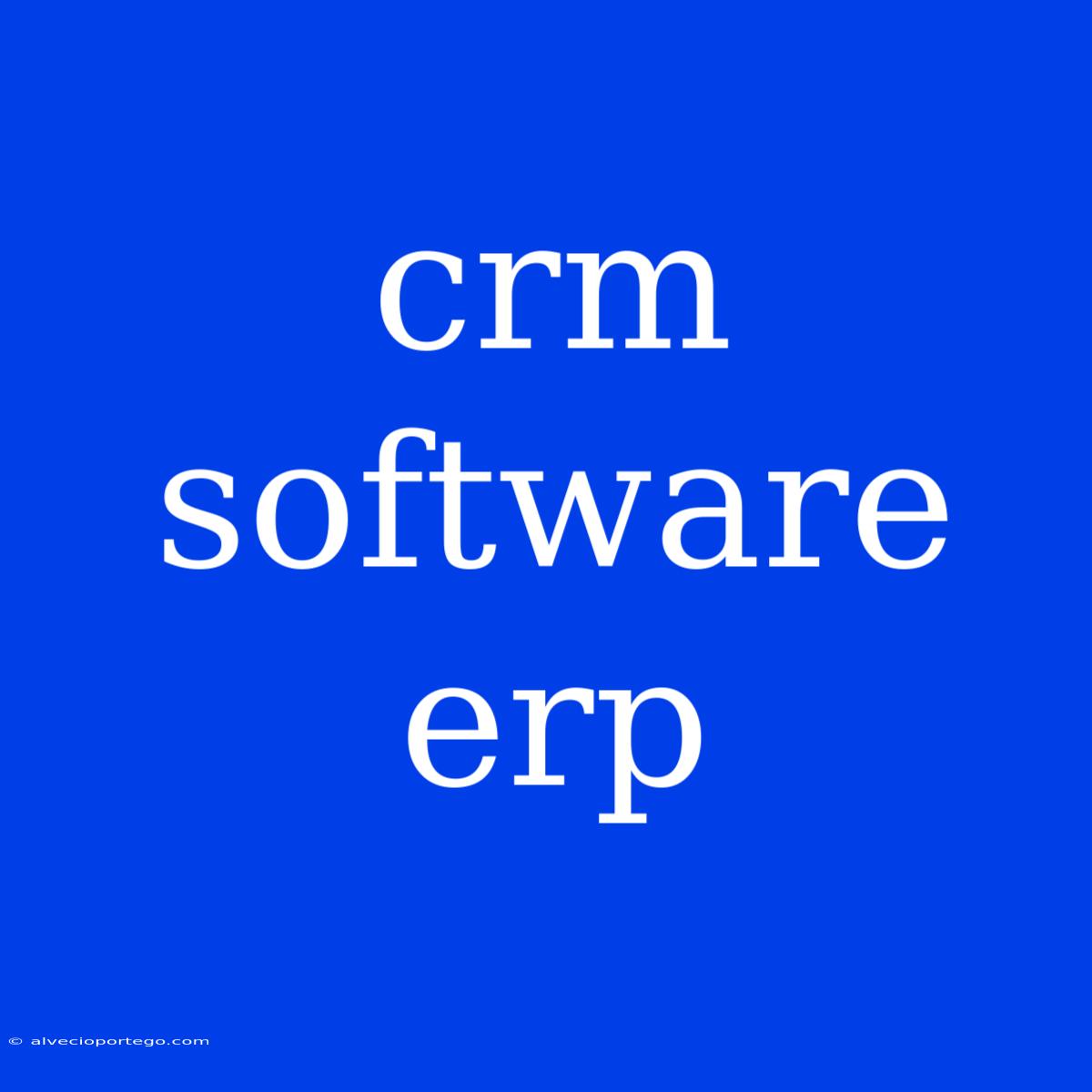CRM and ERP Software: A Powerful Duo for Business Growth
In today's dynamic business landscape, companies are constantly seeking ways to streamline operations, improve efficiency, and gain a competitive edge. Two essential software solutions that play a crucial role in achieving these goals are Customer Relationship Management (CRM) and Enterprise Resource Planning (ERP).
While often viewed as separate systems, CRM and ERP software can work together seamlessly to create a comprehensive and powerful business management solution. This article explores the benefits of integrating CRM and ERP systems, highlighting the advantages and challenges of implementing such a strategy.
What is CRM Software?
CRM software focuses on managing customer interactions and relationships. It helps businesses track customer data, automate marketing and sales processes, improve customer service, and ultimately increase customer loyalty. Key features of CRM software include:
- Contact management: Organize and manage customer information, including demographics, purchase history, and communication preferences.
- Sales automation: Automate sales processes, track leads, manage pipelines, and forecast revenue.
- Marketing automation: Create and manage targeted marketing campaigns, personalize communication, and track campaign performance.
- Customer service tools: Provide efficient and personalized support, manage customer inquiries, and resolve issues effectively.
What is ERP Software?
ERP software is designed to manage and integrate various business processes, including finance, inventory, manufacturing, human resources, and supply chain management. It provides a centralized system for data storage and real-time insights into various aspects of the business. Key features of ERP software include:
- Financial management: Track financial transactions, manage budgets, and generate financial reports.
- Inventory management: Control inventory levels, track stock movement, and optimize procurement processes.
- Production planning: Schedule production, manage materials, and track manufacturing processes.
- Human resource management: Manage employee data, track payroll, and manage benefits.
- Supply chain management: Manage supplier relationships, track orders, and optimize logistics.
The Power of CRM and ERP Integration
When CRM and ERP systems are integrated, businesses can benefit from:
- Improved Customer Insights: Combining customer data from CRM with operational data from ERP provides a comprehensive view of customer behavior and preferences.
- Enhanced Customer Service: Integrating CRM and ERP allows customer service agents to access relevant information about customers' purchase history, orders, and support requests, enabling them to provide personalized and efficient service.
- Streamlined Sales Processes: Integrating sales automation features from CRM with ERP data on inventory and production capabilities can optimize sales forecasting and order fulfillment.
- More Effective Marketing Campaigns: Integrating CRM with ERP data on customer purchasing patterns and preferences allows businesses to target marketing campaigns more effectively and personalize communications.
- Increased Operational Efficiency: Integrated systems eliminate data silos and streamline processes, improving efficiency and reducing errors.
- Better Decision-Making: Real-time data insights from integrated systems provide a more comprehensive understanding of business performance, enabling better decision-making.
Challenges of CRM and ERP Integration
While integrating CRM and ERP offers significant advantages, it also presents some challenges:
- Cost and complexity: Implementing an integrated CRM and ERP solution can be expensive and complex, requiring significant investment in software, hardware, and IT expertise.
- Data migration and synchronization: Migrating data from existing systems and ensuring synchronization between CRM and ERP can be a complex and time-consuming process.
- Customization and configuration: Adapting CRM and ERP systems to meet specific business requirements can be challenging, requiring specialized knowledge and resources.
- Change management: Integrating CRM and ERP requires significant changes to business processes and workflows, which can lead to resistance from employees.
Conclusion
Integrating CRM and ERP software can unlock significant benefits for businesses, enabling them to improve customer relationships, streamline operations, and gain a competitive edge. However, businesses should carefully assess the challenges and carefully plan for implementation to ensure a successful integration. With careful planning, successful implementation of a combined CRM and ERP strategy can lead to significant improvements in efficiency, profitability, and customer satisfaction.

